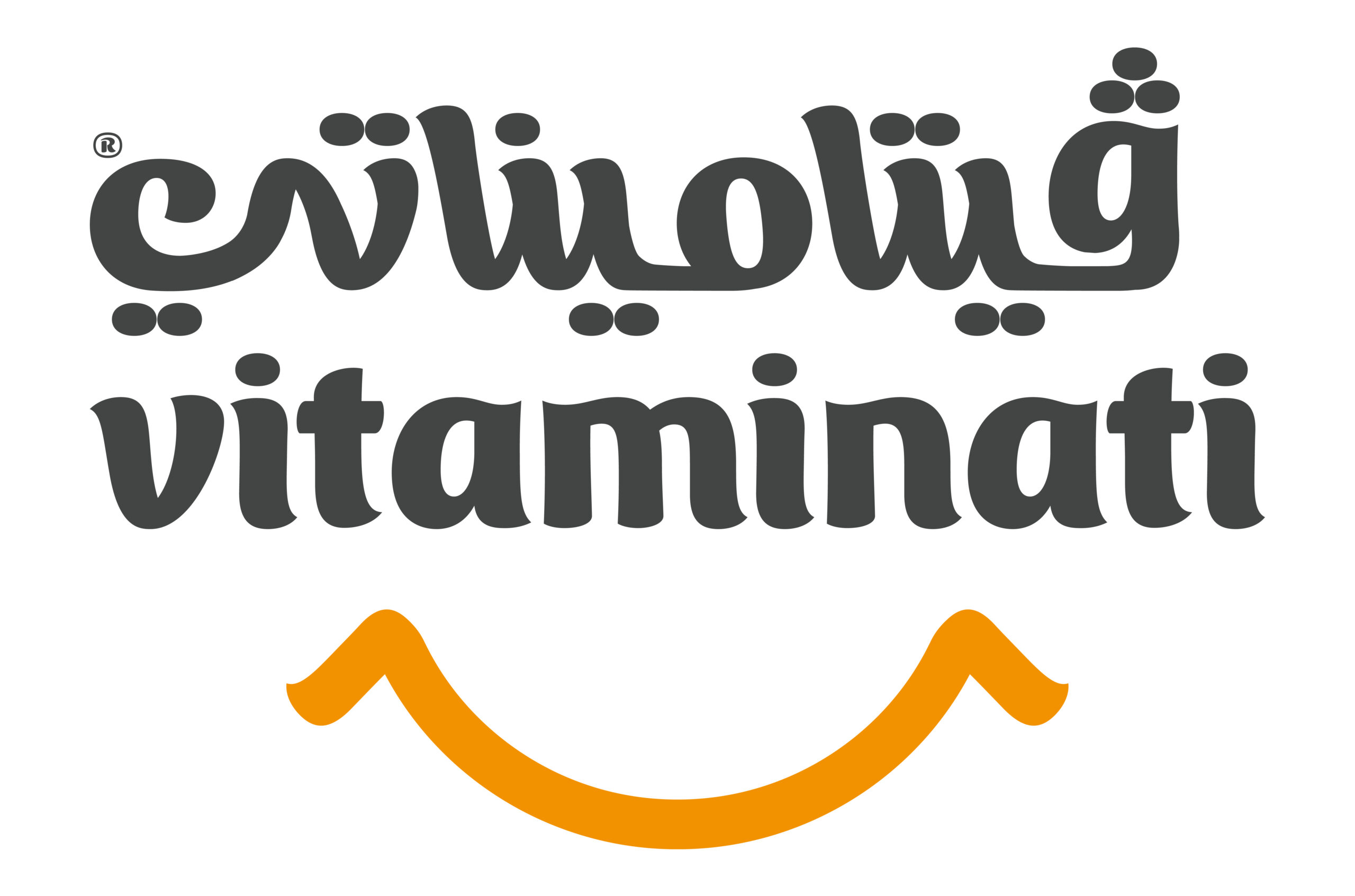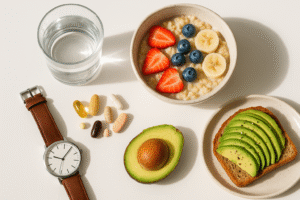Table of Contents
ToggleWhy the Best Vitamins for Children’s Immunity Are Critical?
As a clinical pharmacist, I often remind parents that a child’s immune system is still developing throughout the first years of life.
The body constantly learns to recognize and fight bacteria, viruses, and other pathogens.
To do this effectively, it relies on optimal levels of vitamins and minerals that fuel immune cell activity, antibody production, and tissue repair.
According to the World Health Organization (WHO), inadequate nutrition and limited dietary diversity remain among the most common causes of weakened immunity in children globally.
The best vitamins for children’s immunity therefore form the cornerstone of preventive health, not a luxury add-on.
A diet balanced in these micronutrients allows immune cells to respond quickly and efficiently when exposed to infection.
Understanding the Role of the Best Vitamins for Children’s Immunity:
The immune system is an intricate network of white blood cells, antibodies, and signaling molecules.
Each of these components depends on vitamins and trace minerals to function.
Deficiencies, even mild ones, can impair the body’s ability to detect and eliminate pathogens.
Let’s look at the key nutrients every pharmacist and pediatrician agrees on.
Role of vitamins in immunity for adults.
Vitamin C – The Essential Antioxidant for Children’s Immunity:
Among all the best vitamins for children’s immunity, vitamin C (ascorbic acid) plays a front-line role.
It supports the proliferation of lymphocytes and phagocytes—cells that identify and destroy invaders.
It also protects these cells from oxidative damage during infection.
Evidence summarized by the National Institutes of Health (NIH) shows that regular vitamin C intake can shorten the duration of colds in children and lessen symptom severity.
Good dietary sources include citrus fruits, kiwis, bell peppers, strawberries, and broccoli.
Because vitamin C is water-soluble and not stored, children need daily intake through food or, if prescribed, a low-dose supplement.
Vitamin D – The Immune Modulator Often Overlooked:
Vitamin D is sometimes called the “sunshine vitamin,” but from a pharmacist’s perspective, it’s also an immune modulator.
It activates T-cells and macrophages—the immune soldiers responsible for detecting and eliminating pathogens.
The American Academy of Pediatrics (AAP) notes that vitamin D deficiency increases the risk of respiratory tract infections in children.
Sun exposure for 10–15 minutes in the morning is usually sufficient for synthesis.
Dietary sources include oily fish, eggs, and fortified milk.
If laboratory tests confirm deficiency, pediatricians may prescribe vitamin D3 supplements—usually 400 IU to 600 IU daily depending on age—to restore healthy levels safely.
Zinc – The Trace Mineral That Shapes Immunity:
Zinc is technically a mineral, but it deserves inclusion among the best vitamins for children’s immunity because of its immune-supporting role.
It regulates the production of enzymes essential for white blood cell formation and tissue repair.
The European Food Safety Authority (EFSA) recognizes zinc as critical for normal immune function and cellular growth.
Children who consume adequate zinc demonstrate faster recovery from infections and improved appetite.
Natural sources include lean meats, legumes, nuts, and whole grains.
Pharmacists caution parents against unnecessary high-dose zinc supplements, as excessive intake may interfere with copper absorption.
Iron – Oxygen Delivery and Immune Performance:
Iron is indispensable for both red blood cell production and immune efficiency.
It transports oxygen to every organ—including immune tissues such as the thymus and bone marrow.
Data from the Office of Dietary Supplements (ODS) show that iron deficiency in children can suppress immune response and delay healing.
Iron-rich foods such as liver, spinach, lentils, and red meat should appear regularly in a child’s meals.
Combining them with vitamin C–rich foods enhances absorption.
From a clinical standpoint, iron supplements should only be introduced after confirmed deficiency to avoid gastrointestinal irritation or overload.
Vitamin A – Maintaining the Body’s Barriers:
Vitamin A is another core element in the list of best vitamins for children’s immunity.
It sustains epithelial integrity in the skin, lungs, and gut—barriers that prevent pathogen entry.
It also aids antibody production.
The WHO recommends adequate vitamin A intake through carrots, sweet potatoes, egg yolks, and whole-fat dairy.
This fat-soluble vitamin works synergistically with vitamin D and zinc, especially during cold seasons when infection risk is higher.
Natural Sources of the Best Vitamins for Children’s Immunity:
Balanced nutrition remains the first-line therapy before considering supplements.
Pharmacologically, nutrients from food are better absorbed and carry minimal risk of toxicity.
| Nutrient | Natural Sources | Primary Immune Function |
|---|---|---|
| Vitamin C | Citrus fruits, peppers, kiwis, broccoli | Stimulates white blood cells; antioxidant defense |
| Vitamin D | Sunlight, fish, eggs, fortified milk | Activates T-cells and macrophages |
| Zinc | Meat, nuts, legumes, whole grains | Supports enzyme function and tissue repair |
| Iron | Liver, spinach, lentils, red meat | Improves oxygen transport and cell metabolism |
| Vitamin A | Carrots, sweet potatoes, dairy | Maintains mucosal barriers and vision health |
Parents who rotate these foods across the week effectively provide their children with the best vitamins for children’s immunity in natural, safe amounts.
When Supplements Become Clinically Necessary?
As pharmacists, we only recommend supplementation when laboratory or clinical signs confirm a deficiency.
What are signs and symptoms of vitamins deficiency?
Scenarios that often justify supplements include:
-
Persistent poor appetite or selective eating
-
Strict vegetarian or vegan diets
-
Recurrent infections or slow recovery
-
Documented iron-deficiency anemia
Dosages should be individualized based on age, body weight, and nutritional status.
Over-supplementation can lead to toxicity—excess iron may harm the liver, and too much vitamin D can elevate calcium levels.
Thus, supplements should complement—not replace—the best vitamins for children’s immunity obtained from food.
Lifestyle Tips to Support Immunity Beyond Vitamins:
Even the best vitamins for children’s immunity need supportive habits to work effectively:
-
Adequate Sleep: 8–10 hours nightly to allow immune cells to regenerate.
-
Physical Activity: At least 30 minutes of active play daily to stimulate circulation.
-
Hydration: Sufficient water intake helps flush toxins and maintain mucosal moisture.
-
Balanced Diet: Include protein, fiber, and healthy fats in every meal.
-
Limit Sugar: Excess refined sugar suppresses immune cell response.
-
Good Hygiene: Regular handwashing prevents cross-infection.
-
Smoke-Free Environment: Protects respiratory immunity.
Together, these behaviors enhance the pharmacological benefits of the best vitamins for children’s immunity and reduce the need for unnecessary medications.
Conclusion: Balanced Nutrition Is the Foundation.
From a clinical pharmacy standpoint, nutrition always precedes supplementation.
A varied diet rich in vitamins C, D, A, iron, and zinc builds lasting immunity and reduces the frequency of illness.
Supplements should be used only when dietary intake cannot meet physiological demands and always under professional supervision.
Parents who focus on healthy routines—adequate sleep, hydration, and balanced meals—help their children develop a resilient immune system capable of defending them naturally.
FAQs about the Best Vitamins for Children’s Immunity
1. Which vitamins are most important for children’s immunity?
Vitamins C, D, A, zinc, and iron are essential for optimal immune cell function.
2. Are over-the-counter immune supplements safe for kids?
Only if prescribed by a pediatrician or pharmacist; incorrect doses can be harmful.
3. Can food alone provide enough immunity support?
In most healthy children, yes—whole foods supply all necessary nutrients.
4. What signs suggest low immunity?
Frequent colds, fatigue, slow wound healing, and recurrent infections.
5. How does sleep influence immunity?
During deep sleep, the body releases cytokines that strengthen immune response.
6. Do vegetarian children need supplements?
Possibly; they may require iron and zinc from fortified foods or medical supplements.
Clinical Summary
The best vitamins for children’s immunity—vitamin C, vitamin D, vitamin A, iron, and zinc—form the biochemical foundation of a strong immune defense.
When delivered through balanced meals, these nutrients work synergistically to protect children from infection, support growth, and minimize reliance on medication.
As pharmacists, our role is to guide parents toward safe, evidence-based nutrition and ensure supplementation is used only when medically justified.
PharmD with expertise in pharmaceuticals and a passion for making medical knowledge clear, accurate and accessible to all








